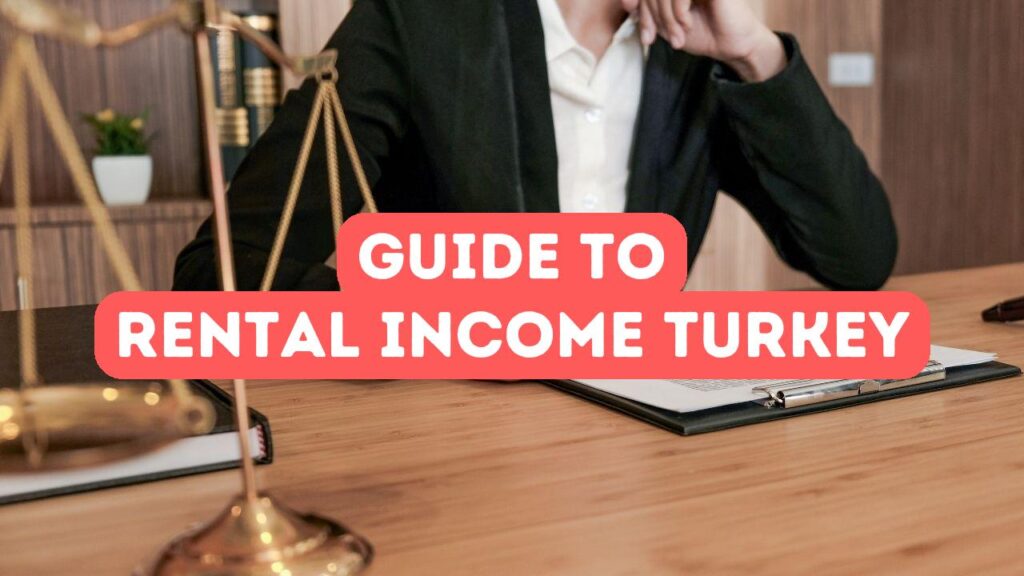Navigating the dynamic landscape of rental income in Turkey opens doors to promising financial opportunities. Turkey’s vibrant mix of culture and modernity makes it an enticing hotspot for property investors. If you’re considering investing in Turkey, understanding the ins and outs of buying property in Turkey is crucial. With its bustling cities and tranquil coasts, real estate in Turkey offers something for everyone. But it’s not just about the landscape or architecture; it’s about capitalizing on the potential for steady income. For those embracing expat living in Turkey, this could be the golden ticket to living the dream while securing financial stability. However, where do you begin? And what should you expect? Fathoming these questions helps build a robust foundation. By optimizing your moves now, reaping the rewards later becomes a reality—not merely a hope. Dive deeper into this guide to unlock the full potential of rental income in Turkey.
Maximizing Your Returns: Understanding the Turkish Rental Market
Maximizing your returns in the Turkish rental market begins with a comprehensive grasp of rental income in Turkey. The key lies in understanding not just market trends but also the location-specific factors influencing rental values. For instance, bustling areas in cities like Istanbul offer excellent potential due to high demand. Meanwhile, serene coastal properties lure expats seeking tranquility and security. Therefore, when investing in Turkey, it’s vital to assess these dynamics carefully. Equally important is gaining insights into the legalities and costs associated with buying property in Turkey. This knowledge can safeguard against unexpected pitfalls. Additionally, tapping into the diverse tapestry of real estate in Turkey allows investors to tailor strategies to their financial goals. Whether you’re a seasoned investor or embracing expat living in Turkey, understanding these elements amplifies your prospects of achieving steady income and prosperous returns.
Maximizing your returns while investing in Turkey hinges on strategic decisions rooted in data-driven analysis. First, pinpoint lucrative neighborhoods by studying rental income Turkey trends and recent sales statistics. Areas like Bodrum and Antalya, known for their appeal to both tourists and expat living Turkey communities, often promise lucrative prospects. Diving into the legal scene is essential; property laws may seem intricate, but understanding them ensures your buying property Turkey journey is smooth. Seek guidance from local experts and collaborate with seasoned agents to interpret current real estate Turkey fluctuations. They can offer invaluable insights into securing advantageous deals tailored to your goals. Moreover, staying informed about economic shifts and infrastructure developments will enhance your ability to anticipate market changes. By integrating these strategies, you fortify your path towards maximizing returns, ensuring that your investment doesn’t just float but sails smoothly into future growth.
Maximize your rental income Turkey potential by delving into the nuances of tenant appeals. Aligning with tastes that span local preferences and international trends boosts your property’s allure. Consider the charm of both traditional and modern designs in real estate Turkey, as these cater to varying tastes. Properties embracing energy-efficient solutions not only reduce costs but also attract eco-conscious tenants, thereby amplifying your investing in Turkey strategy. It’s also wise to factor in amenities—secure parking, proximity to transit hubs, and natural vistas enhance the desirability of your property. For those exploring expat living Turkey, ensuring that your investment ticks these boxes can amplify your returns significantly. Striking a balance between modest charm and modern convenience transforms investing in Turkey from just a financial decision into a savvy venture with a human touch. With this understanding, buying property Turkey isn’t merely a transaction; it’s a step toward lucrative stability.
Legal Considerations for Foreign Investors in Turkish Real Estate
Legal considerations form the backbone of any successful venture into rental income Turkey, and when you’re a foreign investor, the stakes are even higher. When you’re buying property Turkey, understanding the legal landscape can save you headaches down the road. Turkey has streamlined its process over the years, making it easier for international buyers to tap into the thriving real estate Turkey market. However, it’s imperative to be aware of restrictions and regulations specific to foreign buyers. Delve into the legal documentation required and double-check the legitimacy of the seller to dodge any pitfalls. It’s wise to consult with a legal expert who knows not just the language but the local real estate intricacies. This proactive approach can safeguard your investment and ensure your path to generating rental income is as smooth as the calm Turkish seas. For those living the expat living Turkey dream, understanding these nuances is just as crucial.
When leasing property in Turkey as an expat, understanding lease agreements is another crucial aspect. These contracts outline your rights and obligations as a landlord; hence, they must be watertight. Ambiguities can lead to disputes that dampen your rental income Turkey prospects. So, make sure terms cover everything—from rent increments to maintenance responsibilities. As you delve into real estate Turkey, consider hiring a reliable property management company. They possess the local know-how to handle tenant-related issues, ensuring seamless operations. Moreover, knowing tax implications for foreigners engaging in investing in Turkey will prevent future financial woes. Property taxes are straightforward, yet you must comply with all filing protocols meticulously. Hesitation in sorting these matters might lead to unpleasant surprises. For those buying property Turkey intending to dive into the rental market, prioritize these steps to facilitate a stress-free experience and enjoy the fruits of expat living Turkey.
When wading into the waters of rental income Turkey, taxes and financial obligations shouldn’t be overlooked. In the realm of investing in Turkey, clarity on fiscal duties can be your lifeline. Property tax varies and hinges on factors like location and property type. Engaging with tax consultants who are versed in Turkish tax law can streamline this process and keep unforeseen expenses at bay. It’s crucial to grasp double tax treaties in place between Turkey and your home country to prevent tax complications. Additionally, currency exchange fluctuations can impact your income margin, especially when dealing with real estate Turkey across borders. Consider opening a Turkish bank account to facilitate transactions smoothly—just one smart move all savvy investors should employ. For expat living Turkey, don’t let financial nuances undermine your dreams. By staying informed, your journey through Turkish investment waters can be both rewarding and smooth sailing.
Essential Tips for Managing Your Rental Property in Turkey
Managing rental income in Turkey calls for a strategic approach, whether you’re new to the market or a seasoned investor. Firstly, understanding local laws and regulations is paramount. These rules shape your responsibilities and rights as a property owner. Don’t cut corners; research thoroughly to avoid pitfalls. Secondly, consider the location when buying property in Turkey. Bustling cities or serene coastal areas each have their unique advantages. Cityscapes often bring higher rental income Turkey prospects due to demand, while coastal retreats lure vacationers. Hiring a reliable property manager can ease the process. They’ll handle tenant issues and maintenance, freeing up your time. For those eyeing expat living Turkey, these management strategies help secure a steady stream of income. Lastly, stay informed. Real estate Turkey trends can fluctuate, impacting your investment. By keeping your finger on the pulse, investing in Turkey becomes not just a venture but a rewarding journey.
Navigating the challenges of managing rental income Turkey demands the right strategies. First, ensure your property stands out. Invest in quality furnishings and highlight top-notch amenities. Well-presented places attract higher-paying tenants—a key factor in increasing your real estate Turkey earnings. Second, explore marketing avenues. Use popular Turkish real estate platforms to reach potential renters, embracing technology to widen your net. Consider the cultural diverse aspects of expat living Turkey, tailoring your advertising to various preferences. Third, pricing your property based on meticulous market analysis is essential. Understand what similar properties in buying property Turkey trends command and adjust accordingly. Competitive rates ensure consistent interest without undervaluing your investment. Lastly, prioritize building strong relationships. Happy tenants are long-term tenants. Regular maintenance and prompt responses preserve your asset’s value and reputation. Following these tips makes investing in Turkey a smart choice, transforming your property into a stable income generator.
Legal compliance is a cornerstone of managing rental income Turkey effectively. Register your property legally to sidestep potential fines and legal hurdles later. Seek guidance on taxes, as understanding Turkey’s taxation system is key to maximizing net income. Investing in Turkey often involves nuances, especially for expats. It’s wise to consult local experts or attorneys familiar with buying property Turkey regulations. Beyond legality, a little cultural insight goes a long way. Renters will appreciate if you incorporate elements of Turkish decor and hospitality into your real estate Turkey offering. This small touch often leads to greater appeal and satisfaction, especially among expat living Turkey communities. Moreover, transparency with tenants builds trust. Clear communication about rental terms prevents disputes and fosters a positive renting environment. By integrating these elements, managing your property becomes more than a task; it becomes a well-oiled path to financial stability and tenant satisfaction.






